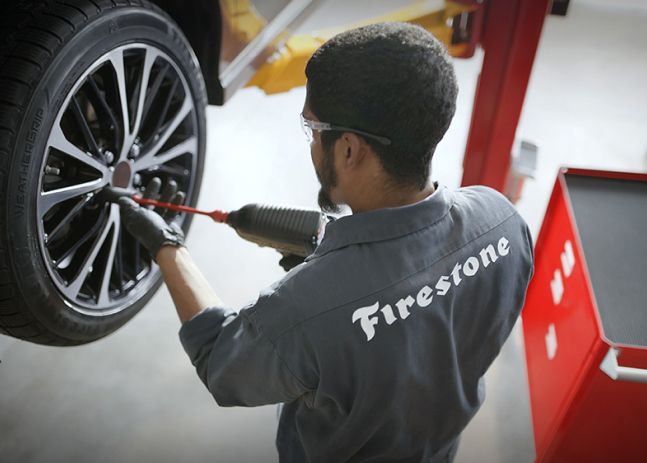FACTORS THAT IMPACT TIRE LONGEVITY
Generally, a set of tires should last anywhere between 50,000 and 60,000 miles on average. Remember to check the warranty on your chosen tires before making a final decision. The type of tires, as well as factors like driving habits, weather conditions, and maintenance routine, will all have an impact on tire longevity. Short of flat tires and irreparable damage, here’s what to keep in mind if you’re trying to plan when it might be time for a new set of tires.
TYPE OF TIRE
Beyond the summer, winter and all-season distinction, there are also a few other tire types to be aware of. Touring tires are meant for typical city and highway driving, all-terrain can go on and off road, and mud terrain tires are designed for gravel, dirt, and mud paths. Choosing based on your vehicle type can also be helpful, so make sure you’re getting tires meant for either a sedan, SUV, CUV, or truck to ensure maximum performance and longevity.
MAINTENANCE ROUTINE
Tires require regular rotations and alignments to ensure tread wear is predictable and spread evenly across the tire. Neglecting these service appointments and other regular maintenance puts more stress on the tires than necessary and can lead to premature wear. Stick to the manufacturer’s recommendations for tire care and they’ll be more likely to last longer.
WEATHER CONDITIONS
Summer, winter, and all-season tires exist for a reason. They are each designed to take on the road conditions of a particular season. Winter and snow tires provide extra grip and traction on snowy and icy roads. Summer tires are ideal for precise handling in wet and dry conditions. All-season tires are perfect for anyone who lives in a moderate climate that doesn’t often get severe winter weather. Using the right type of tires for the right time or year can ensure they last as long as possible and don’t wear out prematurely.
DRIVING HABITS
Tread wear is inevitable, but there are certain driving habits that can lead to premature or uneven wear.
- Speeding: Driving at high speeds can generate more heat in the tires and lead to faster tread wear. Speeding also means you’ll be relying on hard braking to stop more often than you should, which puts stress on the tires.
- Aggressive driving: Rapid acceleration, hard braking, and sharp cornering put unnecessary stress on the tires and can cause them to wear out quickly.
- Driving on rough terrain: Not all tires are built for off-roading, so if you regularly venture off the typical city roads and highways, you might experience premature tire wear. Choose all-terrain tires for tread that will hold up better in off-roading environments.
- Ignoring load limits: If you regularly overload your vehicle, the tires will bear the brunt of that extra weight and wear out more quickly, especially if the weight isn’t evenly distributed
HOW TO EXTEND THE LIFE OF YOUR TIRES
The time will come when you need to replace your tires, but there are a few things you can do to maximize their lifespan.
- Monitor tire pressure: Keep tires at the vehicle’s recommended PSI to protect them and get the best performance.
- Regular rotations: Switching tire positions can help prevent uneven tread wear over time.
- Maintain alignment and balance: The right alignment will protect your tires and the rest of your vehicle from premature damage.
- Drive smoothly: Avoiding hard braking and acceleration helps prevent tires from overheating, therefore protecting tread.
- Avoid overloading: Don’t put more weight on the tires than they are designed to handle.
- Proper storage: Keep your summer or winter tires safely stored during the off-season to help prevent damage.

TIRE DECISION GUIDE
Buying new tires is an investment in your vehicle. Use our tire decision guide to narrow down your options and find a set of tires that fit your vehicle—and your budget.
